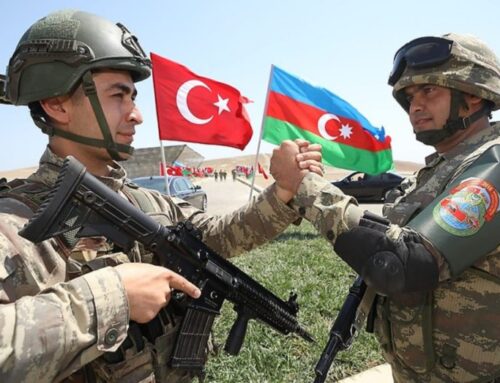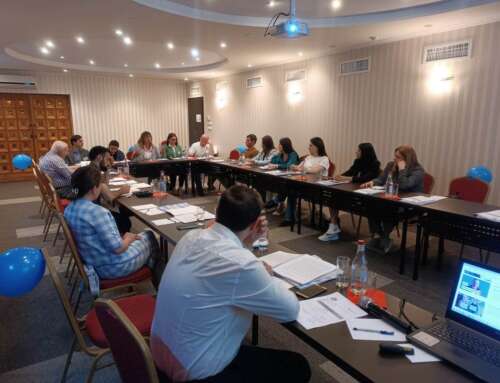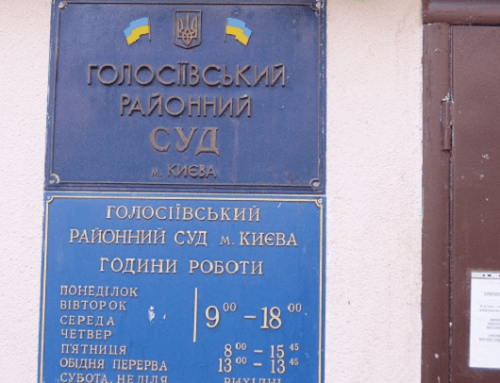Monitoring of the criminal proceedings in the case of Gevorg Navoyan and Anahit Grigoryan (session 10.08.2021).

On October 8, 2021, a hearing on the criminal case of Gevorg Navoyan and Anahit Grigoryan was held in the court of first instance of the city of Yerevan. Gevorg Navoyan was charged under Part 2 of Article 154.2 of the RA Criminal Code. He is accused of bribing a voter to participate in elections and vote for a certain party bloc during the pre-term elections of the National Assembly of the Republic of Armenia in 2021.
Anahit Grigoryan was charged under Part 1 of Article 154.2 of the RA Criminal Code. She is accused of accepting a bribe to participate in elections and vote for a certain party bloc during the pre-election campaign of the elections of the National Assembly of the Republic of Armenia in 2021.
This criminal case was referred to Judge M. Martirosyan with violation of Part 4 of Article 41 of the Judicial Code of the Republic of Armenia.
According to Part 1 of Article 41 of the above law, the distribution or redistribution of cases between judges and the formation of judicial panels is carried out by means of a special computer program (hereinafter referred to as the Computer program), the procedure for using the program is established by the Supreme Judicial Council.
According to Part 4 of the same article, if, as a result of force majeure, it is impossible to distribute cases by means of a Computer program, then the cases are evenly distributed among the judges by the chairman of the court (according to the alphabetical order of the names of judges, taking into account Parts 4 and 5 of Article 42 of this Code).
In this case, according to the alphabetical order of judicial names, the criminal case should have been transferred to judge A. Oganisyan, and not M. Martirosyan.
To clarify the situation, the lawyers of Gevorg Navoyan wrote a statement to the chairman of the court and received a letter in response, according to which the alphabetical order of distribution of the criminal case was violated due to a technical error, given that, on average, 500-600 court cases are distributed in court every day. On the basis of the foregoing, during the court hearing, the defense presented a motion to challenge the judge. The motion was rejected.
In the opinion of the ISHR experts, in this situation, the consideration of the case by Judge M. Martirosyan will not comply with the principles of an independent and impartial court established by law. Accordingly, the criminal case should not be considered by this composition of the court, and judge M. Martirosyan must satisfy the defense’s petition to challenge the judge.
In this case, there is a violation of paragraph 1 of Article 6 of the European Convention, expressed in a violation of the right to a trial by an independent and impartial court established by law.
In this sense, the ECtHR case “Moiseev v. Russian Federation” deserves attention, in which the European Court found a similar violation of the right to an independent and impartial court established by law. In the course of the domestic court’s examination of the criminal case against the applicant, the composition of the court was repeatedly changed by the president of the court without specifying rational reasons. The ECtHR found this practice to be contrary to the requirements of Article 6 of the Convention and noted that referral of a case to a designated judge or court is within the discretion of the national authorities in this area. According to the ECtHR, there is a wide range of factors, such as the availability of funds, the qualifications of judges, conflicts of interest, the availability of a venue for the parties, etc., which the authorities must take into account when scheduling hearings. The European Court has indicated in its judgment that, although it is not its task to assess whether the national authorities had sufficient legal grounds to assign/refer the case to a particular judge or court, the ECtHR must ensure that such assignment/transfer was in accordance with Article 6 § 1, and its requirements for objective independence and impartiality (Judgment of the European Court in the case of “Moiseev v. Russian Federation” of October 9, 2008, complaint No. 62936/00, par. 176).
The ISHR experts agree with this conclusion of the ECtHR and believe that the requirement of legality in the creation of courts (in this case, the use of an automated system for the allocation of judges) is to a certain extent also a condition for their independence and impartiality.
In the case of “Moiseev v. Russian Federation”, the European Court also concludes that when a judge is replaced, guarantees must be provided that would be sufficient to exclude any objective doubt about the absence of undue pressure on judges when they perform judicial duties (Judgment of the European Court in the case of “Moiseev v. Russian Federation” of October 9, 2008, application no. 62936/00, par. 184).
In other words, the right to a court established by law implies not only a clear legislative consolidation of the procedure for the formation of a court, but also the transparency of this proceeding, including when one judge is replaced by another.
In the criminal case under consideration by the ISHR, the change in the composition of the court is motivated by a technical error, which indicates the arbitrary formation of the composition of the court and thereby violates the requirement of its independence and impartiality. The requirement to respect the rule of law in the establishment of courts is to a certain extent also a condition of their independence and impartiality.
In this case, the chairman of the court did not provide for guarantees that would exclude objective doubts about the absence of undue pressure on the judge during the period of his powers. It is worth noting that earlier the ISHR had already come across facts of improper operation of the automatic system for the allocation of judges, for example, when monitoring trials in Ukraine. This indicates that the problem is international.
The next hearing is scheduled for 10/18/2021 at 12:30 pm.
S. Shahbazyan
Expert Council of the ISHR, member of the Armenian Section of the ISHR








Leave A Comment